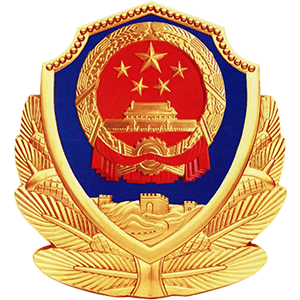| [1] |
SU H, WANG X, LIN Z. Flocking of multi-agents with a virtual leader[J]. IEEE Transactions on Automatic Control,2009,54(2): 293-307.
|
| [2] |
JI H, LEWIS F L, HOU Z, et al. Distributed information-weighted Kalman consensus filter for sensor networks[J]. Automatica,2017,77: 18-30.
|
| [3] |
HU Q, ZHANG J. Relative position finite-time coordinated tracking control of spacecraft formation without velocity measurements[J]. ISA Transactions,2015,54: 60-74.
|
| [4] |
LI H, LIAO X, HUANG T, et al. Event-triggering sampling based leader-following consensus in second-order multi-agent systems[J]. IEEE Transactions on Automatic Control,2015,60(7): 1998-2003.
|
| [5] |
WEN G X, CHEN C L P, LIU Y J, et al. Neural-network-based adaptive leader-following consensus control for second-order non-linear multi-agent systems[J]. IET Control Theory & Applications,2015,9(13): 1927-1934.
|
| [6] |
DEFOORT M, POLYAKOV A, DEMESURE G, et al. Leader-follower fixed-time consensus for multi-agent systems with unknown non-linear inherent dynamics[J]. IET Control Theory & Applications,2015,9(14): 2165-2170.
|
| [7] |
BERTSEKAS D P, TSITSIKLIS J N. Neuro-Dynamic Programming [M]. Belmont, MA: Athena Scientific, 1996.
|
| [8] |
PROKHOROV D V, WUNSCH D C. Adaptive critic designs[J]. IEEE Transactions on Neural Networks,1997,8(5): 997-1007.
|
| [9] |
MURRAY J J, COX C J, LENDARIS G G, et al. Adaptive dynamic programming[J]. IEEE Transactions on Systems, Man, and Cybernetics, Part C (Applications and Reviews),2002,32(2): 140-153.
|
| [10] |
WANG F Y, ZHANG H, LIU D. Adaptive dynamic programming: an introduction[J]. IEEE Computational Intelligence Magazine,2009,4(2): 39-47.
|
| [11] |
LI H, LIU D. Optimal control for discrete-time affine non-linear systems using general value iteration[J]. IET Control Theory & Applications,2012,6(18): 2725-2736.
|
| [12] |
ABU-KHALAF M, LEWIS F L. Nearly optimal control laws for nonlinear systems with saturating actuators using a neural network HJB approach[J]. Automatica,2005,41(5): 779-791.
|
| [13] |
LIU D, WEI Q. Policy iteration adaptive dynamic programming algorithm for discrete-time nonlinear systems[J]. IEEE Transactions on Neural Networks and Learning Systems,2013,25(3): 621-634.
|
| [14] |
ZHANG H, LUO Y, LIU D. Neural-network-based near-optimal control for a class of discrete-time affine nonlinear systems with control constraints[J]. IEEE Transactions on Neural Networks,2009,20(9): 1490-1503.
|
| [15] |
QIN C, ZHANG H, LUO Y. Online optimal tracking control of continuous-time linear systems with unknown dynamics by using adaptive dynamic programming[J]. International Journal of Control,2014,87(5): 1000-1009.
|
| [16] |
ZHANG H, JIANG H, LUO Y, et al. Data-driven optimal consensus control for discrete-time multi-agent systems with unknown dynamics using reinforcement learning method[J]. IEEE Transactions on Industrial Electronics,2017,64(5): 4091-4100.
|
| [17] |
WEN G, CHEN C L P, FENG J, et al. Optimized multi-agent formation control based on an identifier-actor-critic reinforcement learning algorithm[J]. IEEE Transactions on Fuzzy Systems,2018,26(5): 2719-2731.
|
| [18] |
ZHAO W, LI R, ZHANG H. Leader-follower optimal coordination tracking control for multi-agent systems with unknown internal states[J]. Neurocomputing,2017,249: 171-181.
|
| [19] |
ZHU W, JIANG Z P. Event-based leader-following consensus of multi-agent systems with input time delay[J]. IEEE Transactions on Automatic Control,2015,60(5): 1362-1367.
|
| [20] |
TAN X, CAO J, LI X, et al. Leader-following mean square consensus of stochastic multi-agent systems with input delay via event-triggered control[J]. IET Control Theory & Applications,2017,12(2): 299-309.
|
| [21] |
TALLAPRAGADA P, CHOPRA N. On event triggered tracking for nonlinear systems[J]. IEEE Transactions on Automatic Control,2013,58(9): 2343-2348.
|
| [22] |
DONG L, ZHONG X N, SUN C Y, et al. Event-triggered adaptive dynamic programming for continuous-time systems with control constraints[J]. IEEE Transactions on Neural Networks and Learning Systems,2016,28(8): 1941-1952.
|
| [23] |
XU W, HO D W C, LI L, et al. Event-triggered schemes on leader-following consensus of general linear multiagent systems under different topologies[J]. IEEE Transactions on Cybernetics,2015,47(1): 212-223.
|
| [24] |
朱伟, 陈波. 具有领导者的非线性分数阶多智能体系统的一致性分析[J]. 应用数学和力学, 2015,36(5): 555-562.(ZHU Wei, CHEN Bo. Leader-following consensus of fractional-order multi-agent systems with nonlinear models[J]. Applied Mathematics and Mechanics,2015,36(5): 555-562.(in Chinese))
|




 下载:
下载:

 渝公网安备50010802005915号
渝公网安备50010802005915号